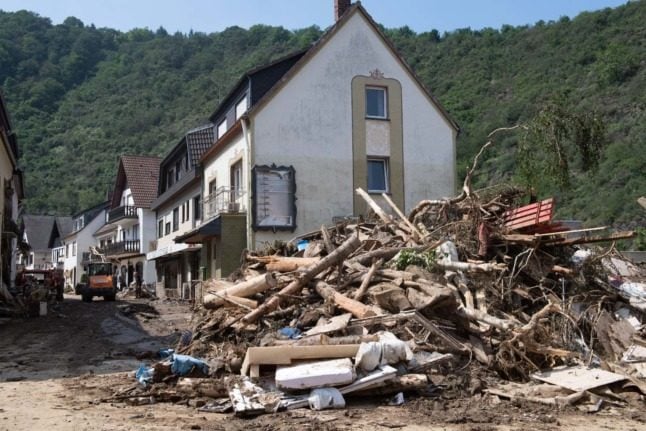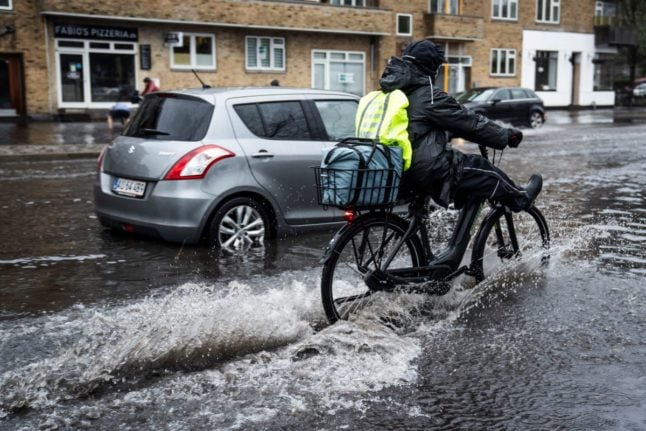Merkel, who is retiring after the September elections, said that Germany and other countries had “not done enough” to meet the goal set out in the Paris climate accord of capping global warming at 1.5C.
“We shouldn’t pretend that we haven’t done anything, but it’s true that not enough has been done to reach the aim of staying well under two degrees and as close to 1.5C as possible,” Merkel told reporters.
“That is not just true of Germany, but of many countries across the world, which is why we need to increase the tempo.”
Merkel had already called for faster climate action last Sunday as she visited flood victims in Rhineland-Palatinate state.
One of the regions worst hit by last week’s devastating floods, Rhineland-Palatinate said Thursday that its death toll had reached 128, taking the total count to 177 in Germany and 209 across Europe.
READ ALSO: Merkel defends German flood alerts as death toll climbs
Merkel’s cabinet approved a huge emergency aid package Wednesday for flood-stricken regions, unlocking some 400 million euros ($470 million) in immediate relief.
“We have also made clear that this sum will be increased if it proves not to be enough,” Merkel said Thursday.
She added that society faced a “profound transformation” as European governments looked to reach carbon neutrality in the coming decades.
Merkel, who will leave office after 16 years following the September 26th poll, defended her record on the environment.
She pointed to new emissions reductions targets agreed by her government earlier this year, which mean Germany now aims to reach carbon neutrality by 2045, five years earlier than the previous target.
READ ALSO: How the extreme flooding in Germany is linked to global warming
Climate change ‘failures’
But the Chancellor admitted failures and disappointment in Germany’s climate protection policy. “Not enough has happened” during her chancellorship, Merkel said. “That’s why the pace has to be picked up.”
Merkel, who has been dubbed the ‘climate chancellor’ in the past, emphasised her personal commitment to the fight against global warming. “I am of the opinion that I have spent a great deal of energy on climate protection,” she said.
“And yet, after all, I am sufficiently equipped with a scientific mind to see that the objective circumstances require that we cannot continue at this pace, but must speed up.”
At the same time, the chancellor pointed out that there has been resistance worldwide to efficient climate protection – for example, when it came to the implementation of the climate protection treaty, the 1997 Kyoto Protocol, where Merkel was in charge of negotiations.
“I experienced many disappointments back then,” Merkel said. She said she had “devoted very, very much energy in my political life” to trying to do more to protect the climate worldwide at a political level. This has “actually shaped my entire political work,” said Merkel.
READ ALSO: Merkel urges Germans to get vaccinated amid ‘exponential’ growth of Covid infections



 Please whitelist us to continue reading.
Please whitelist us to continue reading.
This has very little to do with anthropogenic climate change and much more to do with natural variables, land use and a total failure of internal communications. Merkel should be ashamed to use this as an excuse.